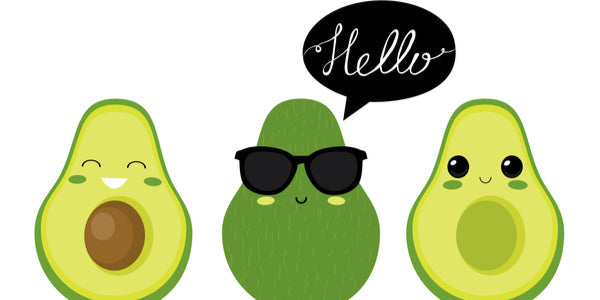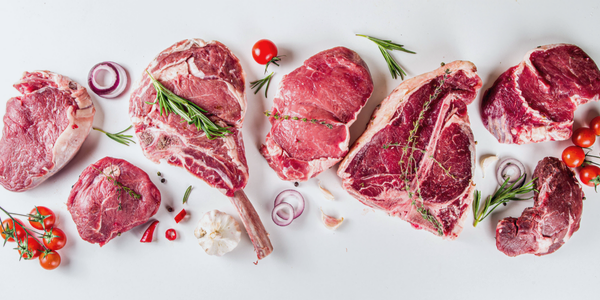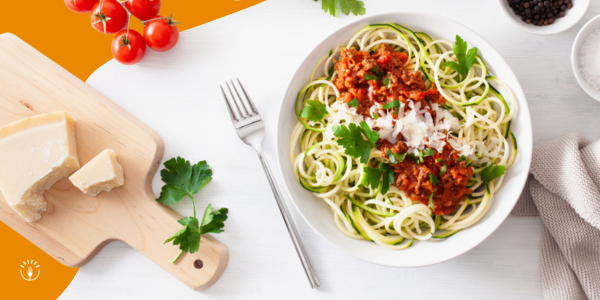
Do you think of fat as an enemy? Then, read on and find out what good fats are all about.
You're not alone. Most people feel that way. But you need to think of fat as a valuable nutrient that is not only important, but actually essential in your diet.
Surprised? Consider all that fat does for you:
1. Good fats help control hunger.
After we eat, fats linger in our stomach, making us feel full longer so that we aren't inclined to eat again. That hunger control is the most immediate benefit of dietary fat.
2. Good fats store energy.
Because humans, unlike cows, for instance, have more important work to do with our lives than eat constantly, our bodies need some way to store energy in those hours we are not filling our stomachs. A small reserve of the energy we store is in the form of carbohydrates, but our most significant energy storage is body fat, and it's perfectly designed for the job. It is compact, containing twice the energy of an equal amount of stored carbs. And it requires no water for storage, as starches do.
3. Good fats insulate and protect.
Body fat insulates us from the cold. Internally, fat provides a cushion for our vital organs, keeping them from being jolted around and protecting them from trauma. Even people who appear slender usually have at least 10 percent body fat for just these reasons.
4. Good fats act as a carrier for vitamins.
Several essential vitamins are transported through the body by fat molecules. Vitamins A, D, E and K in particular are distributed this way, which is why we call them fat-soluble vitamins.
Vitamin A is found in dairy foods, egg yolk, liver and fish-liver oils, and a deficiency of Vitamin A can cause night blindness, among other conditions.
Vitamin D is present in butter, egg yolk and oily canned fishes, like sardines and herring. Adults who don't get enough Vitamin D can suffer weakening of their bones.
Vitamin E is abundant in margarine and various vegetable oils, including corn, peanut, and soybean. Inadequate Vitamin E over long periods can result in changes in the blood or cause muscle problems.
Vitamin K is found in green leafy vegetables. Inadequate Vitamin K can cause clotting problems, leading to serious bleeding disorders.
Except for the bleeding issues, all the problems described above are more common among people who have been on low-fat diets for a long time. People with diseases that hamper the absorption of fat in the digestive tract are prone to the same symptoms.
5. Good fats make food taste good.
Fat simply makes some things taste better. For example, butter does a lot to enhance vegetables, bread and rolls, to say nothing of popcorn. Salad dressing with a nice oil base is a great complement to crisp vegetables, and whipped cream adds subtle flavor and texture to desserts.
And there you have the main reason so many dieters have a hard time cutting back on the amount of fats they consume: when it comes to flavor, very often, fat is where it's at.
In recent years, we have heard a lot about saturated vs. unsaturated fats in our diet, so you're probably aware that saturated fats can spell trouble for your heart and blood vessels. But not many people understand the differences between these two types of fat.
It all has to do with the chemical structure of the fats. The fatty acid chain of each molecule consists of oxygen, carbon and hydrogen atoms. When the spaces for hydrogen atoms are filled to capacity, the fatty acid is called saturated. A saturated fat generally is solid at room temperature and doesn't melt easily.
Not much good can be said for them. The qualities that make a dietary fat saturated contribute to the deposit of material in our arteries, leading to blockages and heart attacks. Saturated fats in the diet tend to raise cholesterol levels in our blood and promote diseases of the heart and blood vessels.
In contrast, unsaturated fats melt more readily than saturated fats. These fats don't appear to cause the same problems that saturated fats do. Some unsaturated fats, such as the fat in olive oil, may even bring down cholesterol levels.
How can you tell one from the other? It's not too hard. Generally, fats from vegetable sources are less saturated than those of animal origin. For example, corn oil, cottonseed oil, soybean oil, safflower oil and sesame oil are very unsaturated.
Palm oil and coconut oil are an exception to this rule, however, because they're both highly saturated. Unfortunately, these oils are frequently used in commercial foods, especially baked goods and snacks, which is another good reason for limiting your intake of those low-nutrient, high-calorie treats.







